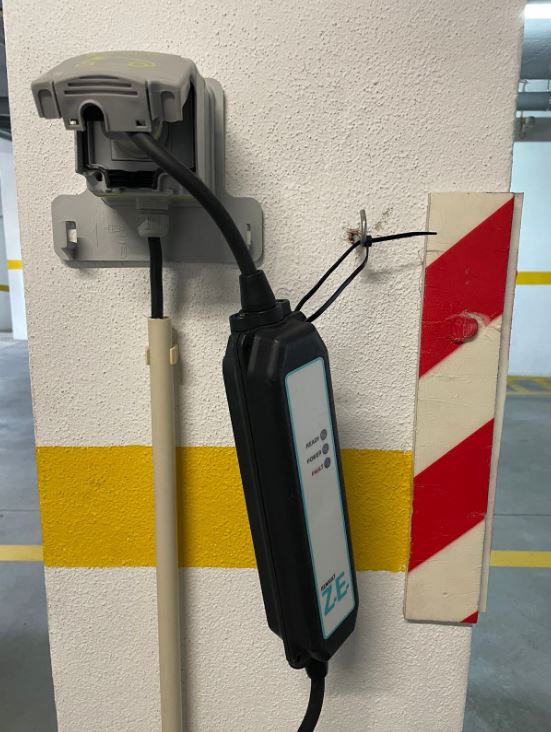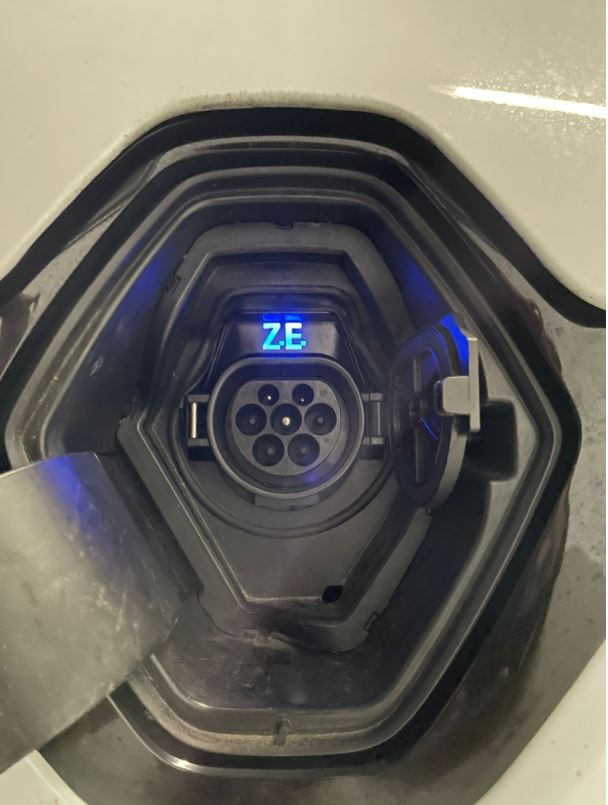Are you a Renault Zoe owner experiencing charging issues? Don’t worry, you’re not alone.
Charging is an essential aspect of owning an electric vehicle, but sometimes things can go wrong. In this article, we’ll go over five tips to help diagnose and fix common charging issues with your Renault Zoe.
If you follow these tips, you might save time and money by avoiding unnecessary trips to the dealership or service center.
Let’s make sure your Renault Zoe is always charged and ready to go!
#1. Check the Charging Cable
One of the most common reasons why your Renault Zoe might not be charging is due to a problem with the charging cable. This cable delivers electricity from the power supply to the vehicle’s battery, and any damage or wear on the cable can cause charging issues.
To properly identify if this is the problem you’re dealing with, first check the condition of the cable. Does it have any visible signs of damage, such as cuts or frayed wires? If so, it can impact the flow of electricity to the vehicle and prevent charging from starting altogether. If the cable is damaged, you should replace it immediately.
Finally, check the connectors on both ends of the cable. Are they clean and in a good state? Dirty or corroded connectors can prevent a secure connection between the charging station and the vehicle, causing charging issues. If the connectors are dirty, try cleaning them with a dry cloth.
You should adopt a preventive attitude with your charging cable. Make sure it doesn’t bend for long periods. For example, when charging, don’t let it hang. Instead, try something like this in the picture. This was suggested to me by the electricians who installed my charging station to keep my cable healthy – it’s working so far!

#2. Check the Power Supply
This is not an issue with your car per se, but it’s very common. As with any other electronic device, your Zoe might not be charging due to issues with the power supply. I had this happen to me a couple of times, when I had the electric current cut in the garage and didn’t notice. It’s not a good feeling to arrive to your car, ready for a trip, and see it didn’t charge as you expected.
So, check the charging station. Is it receiving power? Are there any issues with the electrical outlet that the charging station is connected to? A faulty outlet can certainly prevent the vehicle from charging.
It’s also important to check the voltage and current of the power supply.
The Renault Zoe is designed to charge with a standard 230-volt power supply. If the voltage is too low, charging will be too slow or it might not start at all. But, if the voltage is too high, it may cause damage to the battery or other components of the vehicle.
Similarly, pay attention to the current. The Renault Zoe can charge at a maximum rate of 32 amps (A). So, make sure that the power supply is capable of providing the necessary current to charge the vehicle at the desired rate.
Also, note that the power supply for electric vehicles, especially at public charging stations, may be shared among several vehicles, which could create fluctuations in voltage or current.
In this case, the good news is that your vehicle is fine and you don’t need to fix anything on it — only the power supply.
You can learn more about this topic in this video below.
#3. Check the Battery
The battery is the heart of the electric vehicle. Its job is to store the energy that powers the vehicle’s motor. If the battery is faulty, it impacts the overall performance of the vehicle and its ability to charge.
A battery can become faulty for several reasons, such as a broken battery cell or a bad battery management system.
Electric car batteries last a super long time – Renault’s warranty alone lasts up to 160,000km (100,000 miles)! Unless it’s an extreme case, the age or usage of your battery shouldn’t significantly impact its performance. However, there are other factors to consider.
Temperature is one of them. Electric vehicle batteries are sensitive to temperature and it may impact the battery’s health.
If the battery is too cold, it may not be able to accept a charge, while if it’s too hot, it may not be able to hold a charge. It’s important to ensure that the battery is within the recommended temperature range when charging the vehicle.
If you still have a rented battery, a common scenario amongst Zoe owners, Renault replaces your battery free of charge in case it drops below a certain percentage of health.
If you own your car’s battery, like I do, and if it is under warranty, you may still be able to get it replaced at no cost. If not, you may need to get a new one. Otherwise, consider having the battery reconditioned or repaired, a more cost-effective option.
#4. Check the Software
EVs have fewer mechanical problems, mostly due to their simpler design and fewer moving parts. However, they are more likely to have software issues — it’s only natural, considering they basically rely on software to function.
So, if your Renault Zoe isn’t charging, it might well be a software issue.
The onboard computer controls the charging process and communicates with the charging station to ensure that the battery is charged properly. If there is a problem with the software, it can cause a range of issues that affect the charging process, such as slow charging speeds or an inability to charge altogether.
Updating or resetting the software can often fix these issues. However, you should have a qualified technician handle any software updates or resets to avoid causing further damage to the vehicle.
The bright side is that updating software not only might fix battery issues but also improve the overall performance of the vehicle. So, it’s important to have the software updated regularly as part of your routine maintenance.
#5. Check the Charging Station Compatibility
There are different types of charging stations, each appropriate for specific types of vehicles.
The Renault Zoe uses a Type 2 charging port, compatible with most public charging stations and some home ones. Still, you need to ensure that the one you are using is designed to work with your specific make and model of vehicle.
Another factor to consider is the power output of the charging station, which varies from station to station. The Renault Zoe accepts a maximum charge rate of 22 kW. Ensure that the charging station you are using is capable of providing the necessary power output to charge your vehicle. For example, in my case, I had to install a compatible charging station and increase the contracted power with the electricity provider when I bought the Renault Zoe.
If your problem is the charging station compatibility, there are a few options for you to solve this. Are you using a public charging station? Find an alternative station that is compatible with your vehicle. Are you charging at home? You may need to purchase a new station that is compatible with your vehicle. Or a cheaper option might be to get an adapter or cable that will allow you to use your existing station with your Renault Zoe.

Having charging issues with your Renault Zoe can be frustrating, but it’s not uncommon. By following the steps mentioned in this article, you can troubleshoot the problem and be back on the road in no time!
I hope this was helpful — thank you for reading! If you want to learn more about EVs, check the related articles below.
1 comment
Hi I have a Renault zoe 2019 41kw.The thing I’d the car will charge for 15 to 30 minutes then go off I have to wait about the same time then it will charge again so on .hole you can help Greg